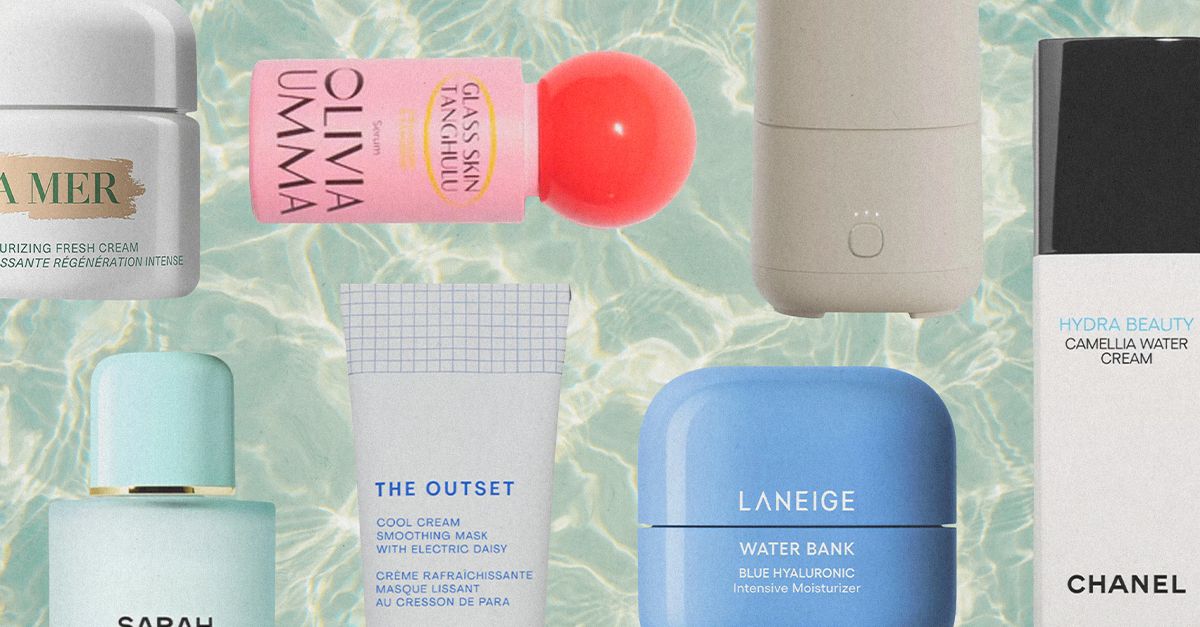A strange thing happened to me this summer. One day, the skin on my face—specifically my forehead—was suddenly insanely dry. This had never happened to me before, and I didn’t understand why. We’re in the middle of summer, not winter, when it’s normal to experience an increase in dryness. What could be going on?
I’m a beauty editor, so I’m always testing new products, but nothing recent enough to blame. In my mind, I ran through the list of possible suspects. My skin, which had always been oily/combination and acne-prone, has been a lot drier since entering perimenopause. Could this be a new branch of that? Rude. Like a good girl, I’d also been extra committed to my sunscreen, reapplying much more than usual. Was this my punishment for my due diligence? Better not be!
I needed an expert opinion on my sad summer skin, so I contacted Melanie Palm, MD, MBA, a board-certified dermatologist and cosmetic surgeon at Art of Skin MD in San Diego, California. “Dry skin during perimenopause is incredibly common and is primarily due to the decline in estrogen levels, which play a crucial role in maintaining skin hydration and elasticity,” explained Palm. “The skin’s ability to retain moisture diminishes when estrogen levels drop, leading to dryness and a thinner skin barrier. This makes the skin more sensitive in the summer months as temperatures rise and when sun exposure is more prevalent.”

Perimenopause has made my skin chaotic, so the possibility of it being the cause of my sudden dryness made a lot of sense. But I still wondered about sunscreen. “While sunscreen is essential for protecting your skin from harmful UV rays, certain types can potentially exacerbate dryness,” Palm said, adding that it’s best to avoid ones with zinc oxide, titanium dioxide, ethanol, isopropyl alcohol, or benzyl alcohol. (I use a lot of mineral sunscreen, which contains zinc oxide and titanium dioxide, so that could have contributed, too.) Instead, Palm recommends opting for sunscreens that are formulated for sensitive or combination skin and contain moisturizing ingredients such as hyaluronic acid, glycerin, ceramides, or peptides. “Products formulated with these ingredients will help protect your skin from UV damage without drying it out,” she continued.
Another thing I wondered about was the impact of air conditioning. Since temperatures have reached 90 degrees and above where I live in L.A., we’ve been running the AC nonstop. Unfortunately, just like heaters during the winter, air conditioners can affect the skin due to the low-humidity environment. Unless there was a way to psychically contact my skin cells and directly ask them what was going on, I just had to figure out what to do next. Thankfully, Palm gave me advice on how to get my skin back on track by using a gentle yet hydrating cleanser, making sure to moisturize, avoiding super-hot showers, and staying hydrated regularly.
I wasn’t about to go on without a fight, so I looked at my skincare stash and gathered the best products for dry skin while keeping Palm’s expert tips in mind.
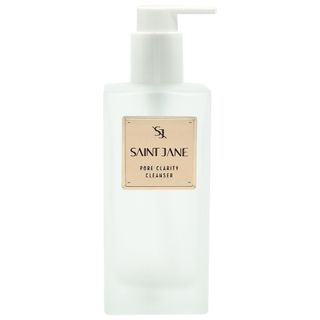
Saint Jane Beauty
Pore Clarity Hyaluronic + Flower Acid Cleanser
I’ve learned the hard way that my skin no longer tolerates foam cleansers (they tend to be drying, so they’re better for oily skin types, aka the “old” me), so I’ve turned to cleansing oils and hydrating gel cleansers. The new Pore Clarity Cleanser from Saint Jane couldn’t have come at a better time. Not only is it a gentle gel cleanser, but my pores also still get exfoliated without compromising hydration, thanks to a heavy dose of flower AHAs and hyaluronic acid.
I’ve had great luck with many of Saint Jane’s products, and I am excited to add this one to my list of faves.
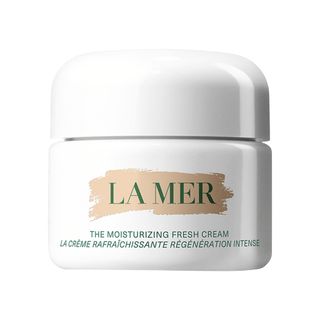
La Mer
The Moisturizing Fresh Cream
If you want to splurge, may I introduce you to the La Mer Moisturizing Fresh Cream? This newer face cream from the legendary brand balances sebum levels in oilier skin (again, my real skin type), but doesn’t feel drying like other oily-skin moisturizers. In this house, we stan Miracle Broth.
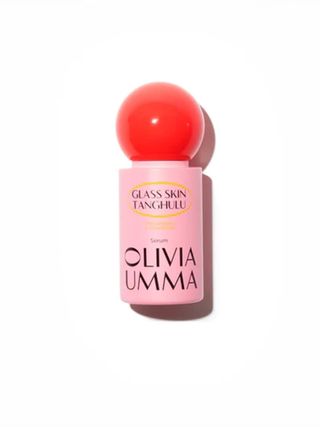
OLIVIAUMMA
Glass Skin Tanghulu Strawberry and Tangerine Korean Serum, Anti-Aging, Hydratation, Vitamin A, B, C, E With Niacinamide
I’m having a passionate affair with the serums from the new K-beauty brand OliviaUmma. Yes, they’re super cute, but they’re also packed with antioxidants, vitamins, and niacinamide. I alternate between this strawberry and tangerine serum with the blueberry one.
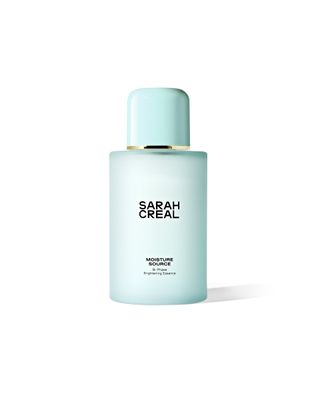
Sarah Creal
Moisture Source Bi-Phase Brightening Essence
When I tell you the Moisture Source essence has been my summer savior, I’m not exaggerating. It’s from Sarah Creal, a new beauty brand focusing on over-40 skin (yay!). I’ve been using this nonstop since I got it, and it’s helped bring back so much moisture to my skin. I love the two-in-one aspect: it moisturizes the skin and then seals it all in with squalane oil. My skin is in heaven every time I use it. I’m truly obsessed. Plus, a little goes a long way, so it will last you a while.
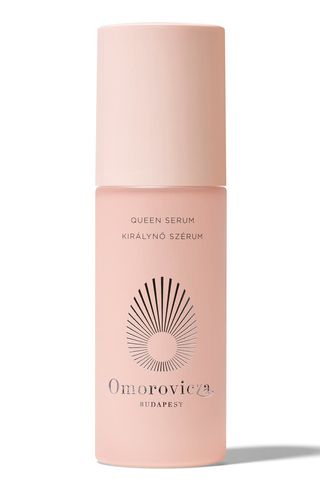
This formula almost feels like a lightweight moisturizer. Omorovicza’s Queen Serum (the perfect name for me) plumped my skin with hydration when I needed it the most. It also has anti-aging benefits and focuses on menopausal skin due to the presence of Mediterranean microalgae (has a similar effect as retinol), Chinese leaf extract (helps defend skin functionality), and Lithops stem cells (boosts vitamin D, strengthens and revitalizes the skin).
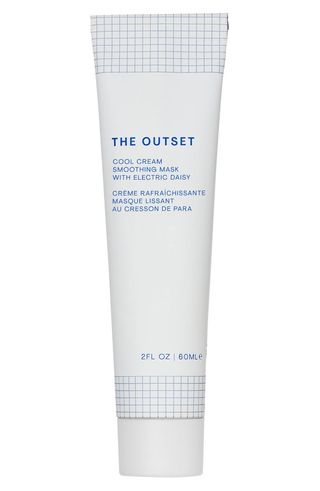
The Outset
Cool Cream Smoothing Mask With Electric Daisy
First of all, I love how the Outset’s Cool Cream mask is a take on old-school cold cream without all those questionable outdated ingredients like mineral oil. Aside from the brand’s signature hyaluronic-acid complex, it’s made with a combination of skin-loving botanical ingredients, including linseed, yerba mate, and arnica. But it also contains a floral plant called electric daisy, which fondly reminds me of my raver days (Electric Daisy Carnival is the name of a massive rave festival) and has some interesting benefits.
The plant is a powerful fighter against aging signs, as it enhances skin firmness and minimizes the appearance of wrinkles, rough texture, and all-over stressed skin. And if you fall asleep with the mask on, no need to freak out. It can also be used as an overnight treatment. (I like using it as sort of a targeted spot treatment on my dry areas!)
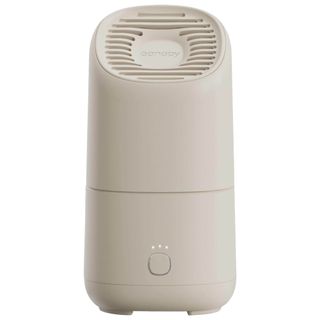
CANOPY
The Canopy Portable Humidifier for Skin Hydration
Remember when I mentioned that AC could be another culprit for my dry summer skin? When I realized that, I was like, “Duh,” and quickly grabbed my Canopy portable humidifier. I use the larger one regularly during the winter, but this mini version is especially helpful when I’m at my desk and there’s a fan blowing at my face (while the AC is also blasting).
More Hydrating Skincare Products to Try
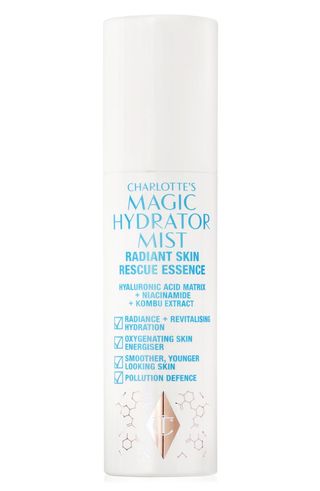
Charlotte Tilbury
Charlotte’s Magic Hydrator Mist
I love facial sprays, as they can feel super indulgent to use. They can be really good for your skin, especially when they contain the right ingredients. Charlotte Tilbury’s Magic Hydrator Mist has everything to get your skin back in business, like hyaluronic acid, niacinamide, kombu extract, and good ol’ glycerin.
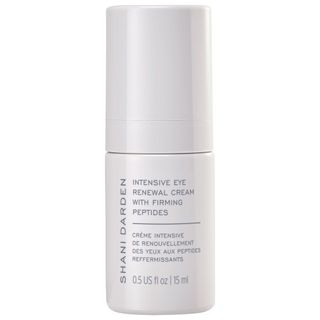
Shani Darden Skin Care
Intensive Eye Renewal Cream With Firming Peptides
If you ever deal with dry under-eyes, you might want an eye cream that focuses on hydration, like this fantastic one by Shani Darden. It features pea peptides, silk tree extract, squalene, ceramides, shea butter, and niacinamide. Aside from bringing moisture to the area, this eye cream firms and lifts the eyes while minimizing bags and fine lines.
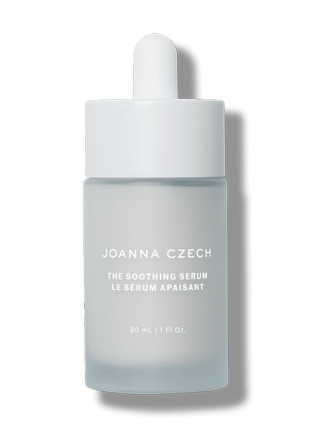
Joanna Czech Skincare
The Soothing Serum
If your skin isn’t just dry, but a little pissed off, then this serum by Joanna Czech is a must. It has anti-inflammatory, antioxidant, and vitamin-rich ingredients which target redness on stressed and inflamed skin. Just gently pat a few drops of the serum into your skin post-cleansing and you’ll be gifted with hydrated, protected, and, of course, soothed skin.
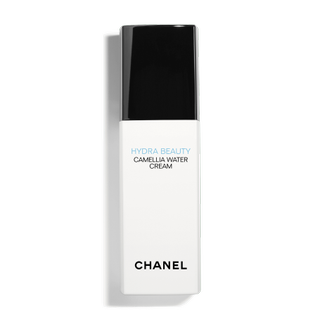
CHANEL
Hydra Beauty Camellia Water Cream
Chanel’s signature flower for more than a century is the camellia, which is also a very beneficial skincare ingredient. Through an exclusive extraction process, Chanel teamed camellia extract with blue ginger extract to maintain and balance skin moisture levels and keep skin looking plump and rejuvenated.
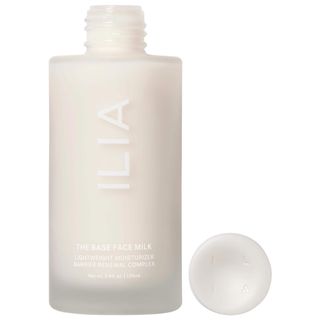
ILIA Beauty
The Base Face Milk Essence & Lightweight Moisturizer With Hyaluronic Acid
Is it an essence or a moisturizer? It’s both! This luxurious-feeling Face Milk does a lot more than deliver hydration. It improves texture, strengthens the skin barrier, and decreases redness—the perfect antidote for dehydrated and stressed-out skin.
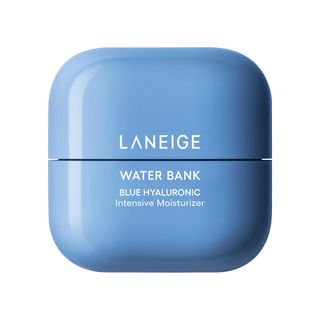
LANEIGE
Water Bank Blue Hyaluronic Intensive Moisturizer With Peptides + Squalane
This moisturizer is special for many reasons, including that it is the product of some highly impressive science. Through an innovative fermentation process using deep-sea algae, the micro-size Blue Hyaluronic Acid is created, delivering insane moisture to the skin faster and deeper than ever before.
Read the original article here
